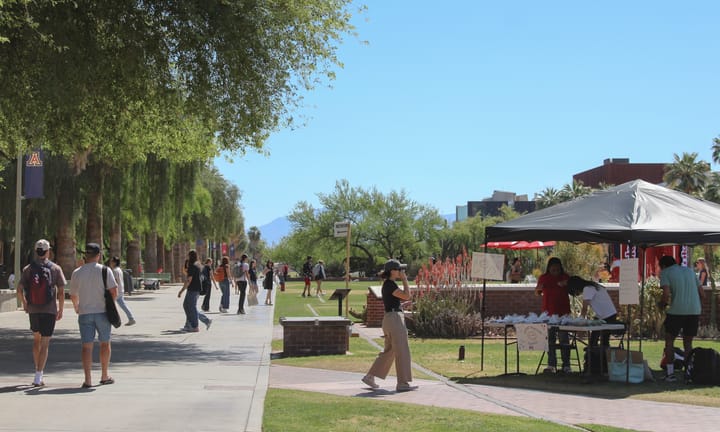Zemam's marks 30+ years as Tucson's first African restaurant
Zemam’s Ethiopian Cuisine, Tucson’s first African restaurant, has thrived for over 30 years, expanding from a small eatery into the centerpiece of the Z Street Market.
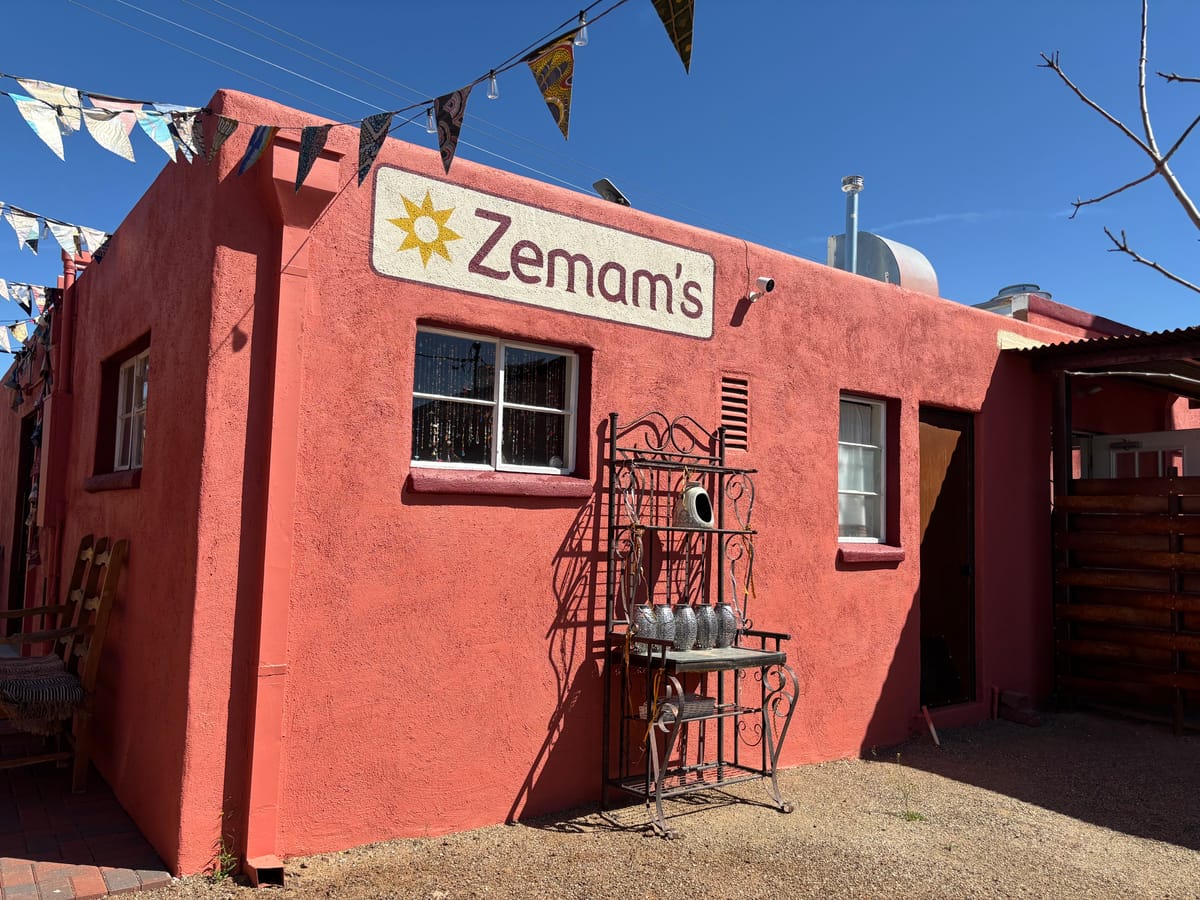
Tucson is home to a growing number of restaurants offering authentic African cuisine, with some representing distinct regions of the continent.
Café Desta on Stone Avenue brings flavors of East Africa, while the east side’s Alafia serves traditional dishes from the West African country of Benin.
Queen Sheba Restaurant and Market, at East 22nd Street and South Wilmot Road, offers the delights of food from Eritrea, a country in East Africa.
Each spot is deserving of praise and recognition, but one establishment stands out as the first African eatery to hit the Tucson dining scene, way back in 1993.
For more than 30 years, Zemam's Ethiopian Cuisine has been a mainstay on Broadway’s Sunshine Mile and is now the anchor for the year-old Z-Street project, an Afro-centric dining and entertainment concept.
Since its opening, Zemam's patrons have enjoyed the unique experience of sharing communal platters filled with a variety of stews, meats, and vegetables, seasoned with the traditional Ethiopian spice blend known as berbere.
In keeping with dining customs, no cutlery is needed — guests use their hands and injera, a spongy flatbread, to scoop up each bite.
“I made my own recipes, and to this day I follow all of the steps that I made when I first started cooking,” said owner and chef Amanuel Grebremariam. “To have a consistent taste of good food, you have to have a recipe with measurements. That’s how we’ve been successful for over 33 years.”
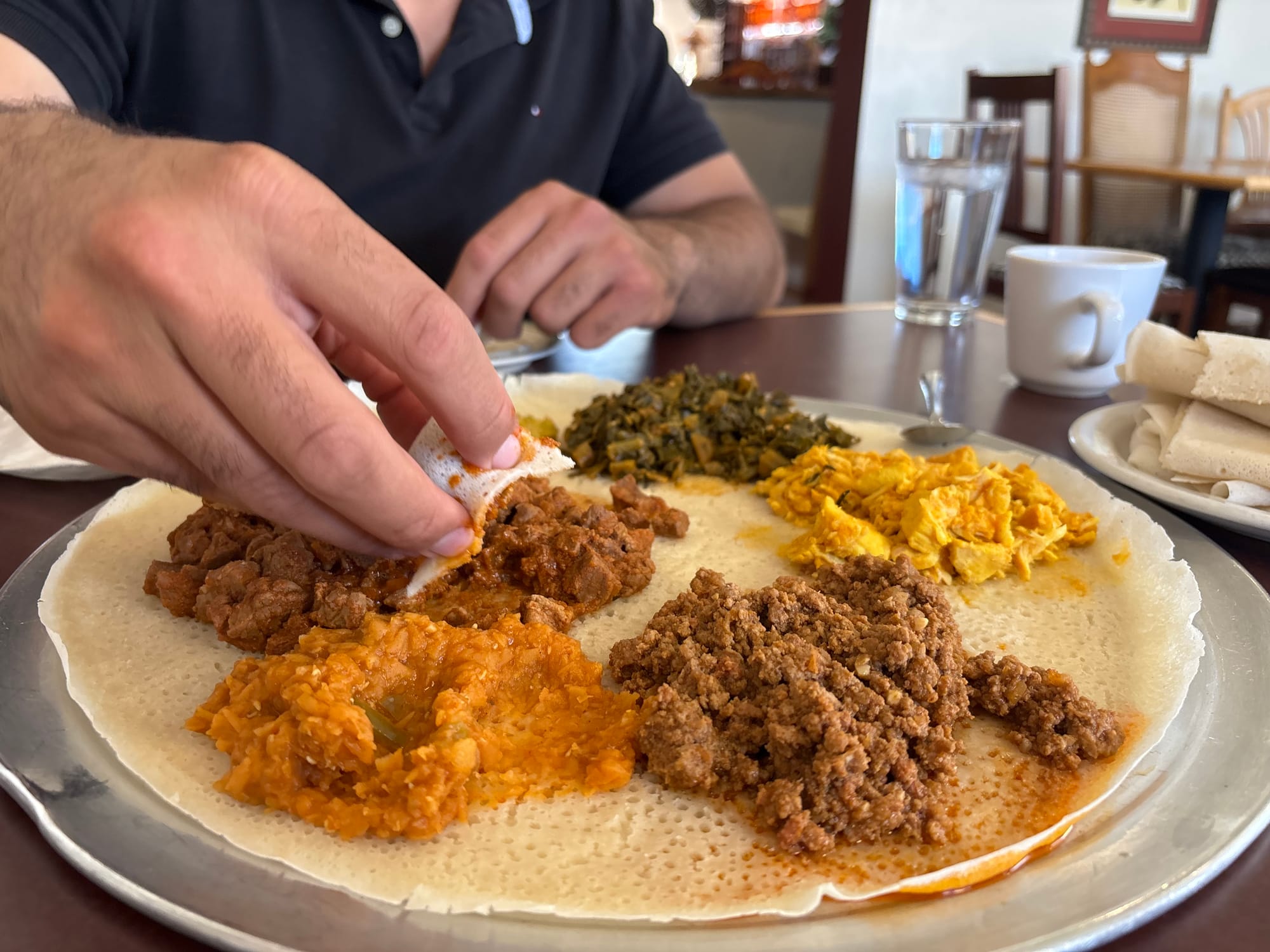
Grebremariam, 72, opened the restaurant as a small room with four tables and a kitchen the size of an apartment bathroom. Now, he shares ownership of Z-Street with two of his sons, Lucas and Noah Grebremariam.
Zemam’s recently underwent a major expansion and reopened last year as part of the Z-Street project, which includes an upgraded version of the restaurant's original location alongside Zerai’s International Sport Bar and an Ethiopian coffee shop, Zidamo’s, that is set to open in the next few months.
The space is also the site of different community gatherings, inviting food vendors to give customers a wider taste of International culture.
Zemam’s story is one of hardship and perseverance that started well before the restaurant's opening.
Grebremariam fled Ethiopia as a refugee in the early 1980s amid ongoing famine and civil war in the country.
“It took me 17 days to walk from Ethiopia to Sudan, avoiding so many wild animals, so many bad people,” he said.
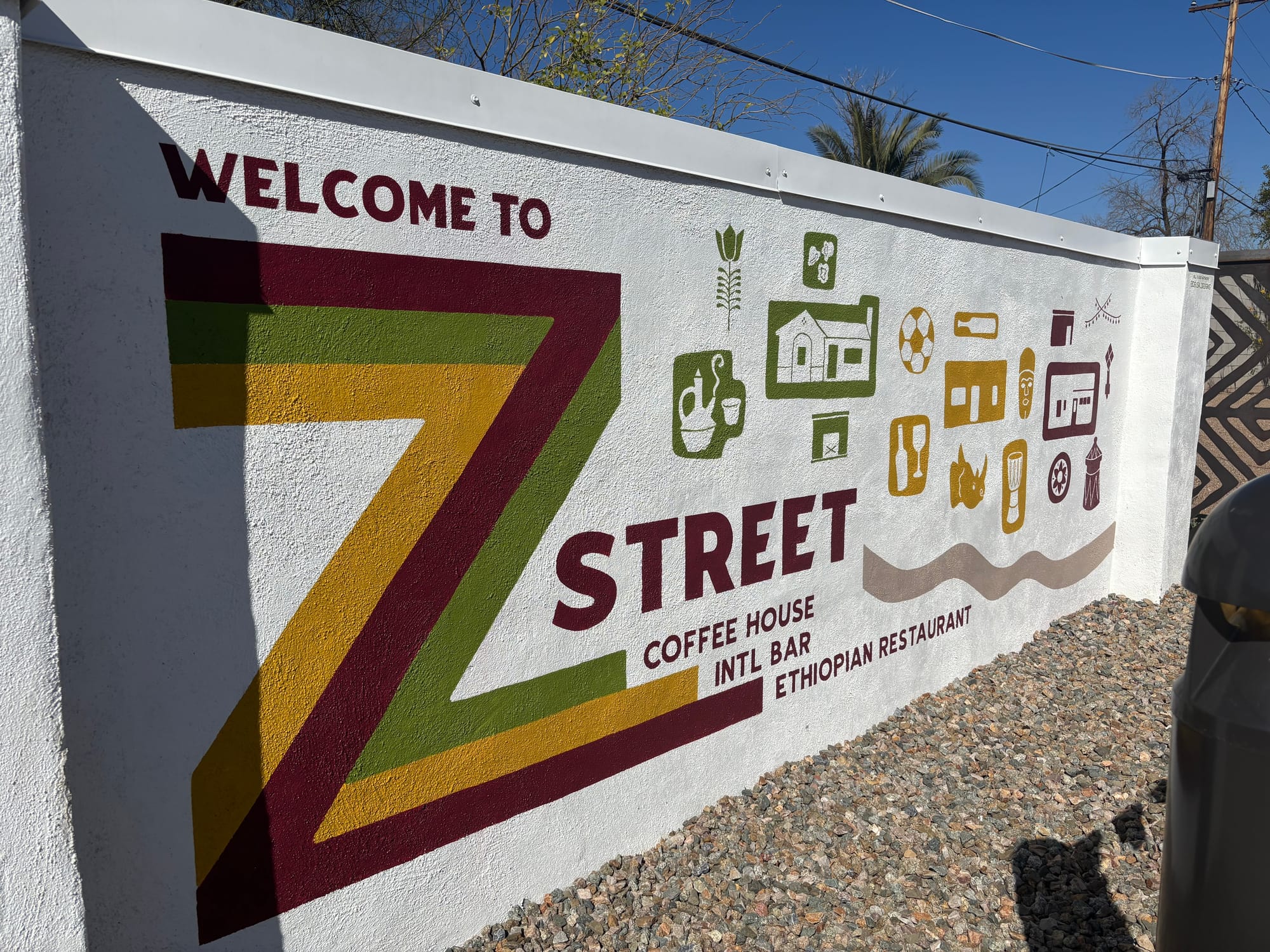
Settling in Sudan, Grebremariam stayed for a year and a half in a refugee camp, where he met his wife, Cindy, who worked as a nurse in the camp.
“It’s hard to comprehend what it takes to be a refugee, leaving the family you love and the friends you grew up with. Leaving everything that you have behind and just fleeing to get a peaceful night without being afraid, without being interrogated or jailed,” Grebremariam said.
After resettling in Washington, D.C., with no money, Grebremariam worked as a taxi driver and at McDonald's, earning the minimum wage of $1.25 an hour.
He also attended the University of Maryland, where he earned a degree in chemistry. In 1983, he married his wife and soon after that they started a family. Grebremariam described his time in the city as challenging, balancing work, school, and raising children.
“I decided I didn’t want to live in a big city like that and raise kids because it was hard,” he said. “I was driving a taxi, going to school, doing all the childcare — it was really hard, but we overcame all of it.”
Around this time, Grebremariam began contemplating the idea of opening his own restaurant.
“When I saw some restaurants in big cities like Washington, D.C., New York, and L.A., they were doing really well,” he said. “Even though I knew most restaurants fail within the first year, I thought if you have good food, good service, and a good location, you can make it.”
He and his wife ended up joining the Peace Corps and were sent to West Africa, where they worked for two years in the U.S. Embassy.
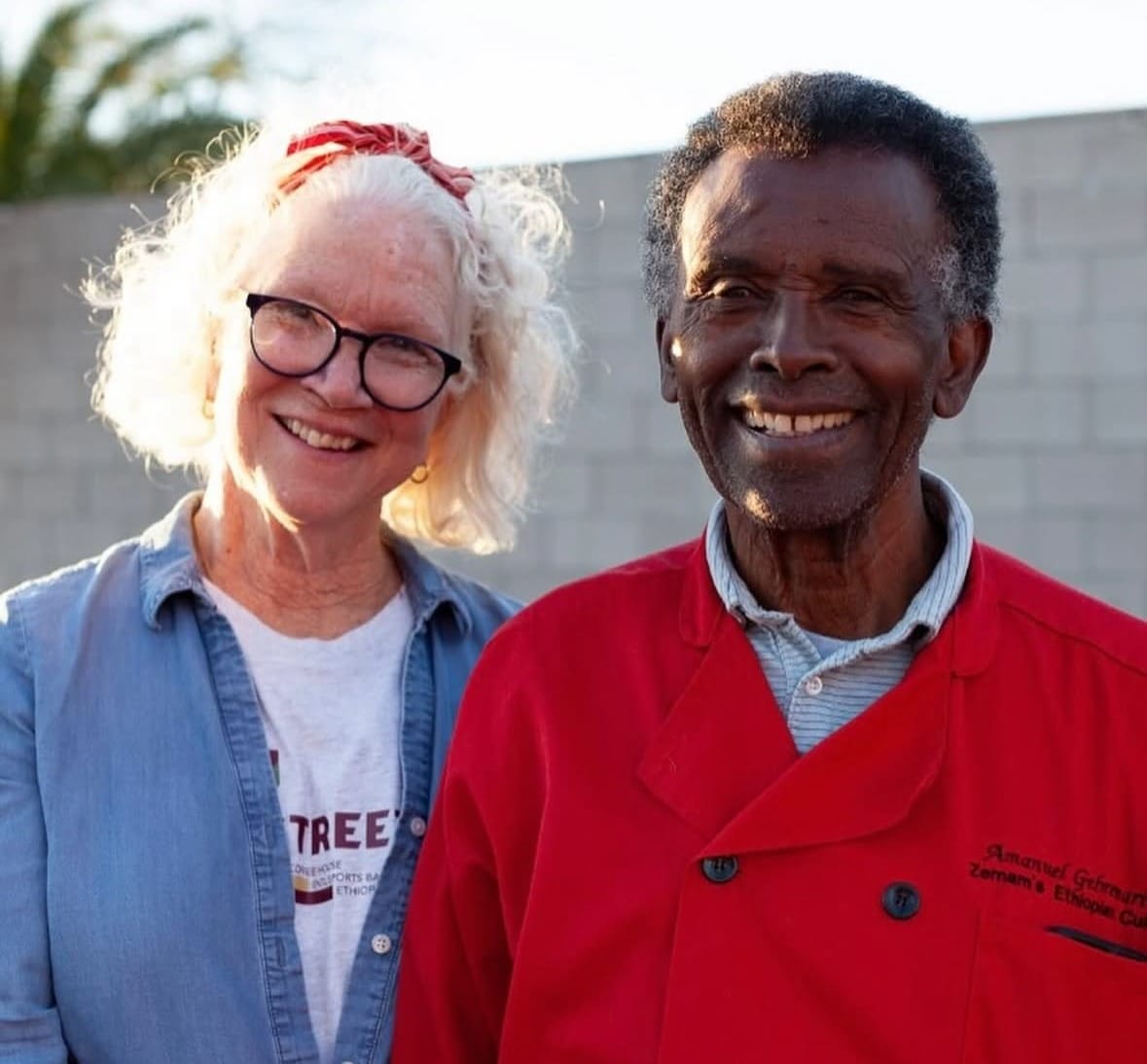
In 1989, Grebremariam landed a job with a company that built large-body airplanes, which brought the family to their permanent home of Tucson.
He realized that the work wasn’t making him happy and he wanted to be independent, so he quit the job on a whim to pursue his own business.
“I said, ‘I’m going to start my own Ethiopian restaurant,’ and my wife said, 'Honey, you don’t have any experience in cooking,’” Grebremariam recalled. “I said, ‘Don’t worry, if somebody could do it, I could do it, too.’”
Besides watching his mother Zemam (the restaurant's namesake) cook when he was little, Grebremariam had little to no culinary experience prior to opening the restaurant. He spent time working with Ethiopian cooks and traveled to restaurants around the United States, where he would ask permission to observe in the kitchen.
With the profits he made from selling his house in Washington, D.C., and a loan from the bank, Grebremariam purchased the small property and opened the restaurant, which immediately gained a loyal following.
“I opened this restaurant, and it definitely became successful overnight. We got really, really good reviews,” he said.
Fast forward to 2025, and the restaurant has changed drastically, growing from just four tables to a larger dining hall with 28 tables, and a kitchen three times the size of the original.
“I think everybody should start their venture and try what they have to offer. If you fail, you learn from your failing. If you are successful, you continue with what you have,” Grebremariam said.
Z-Street, including Zemam’s, is open Sunday, Tuesday through Thursday from 11 a.m. to 9 p.m., and Friday and Saturday from 11 a.m. to 10 p.m. The menu and more information can be found on the website.
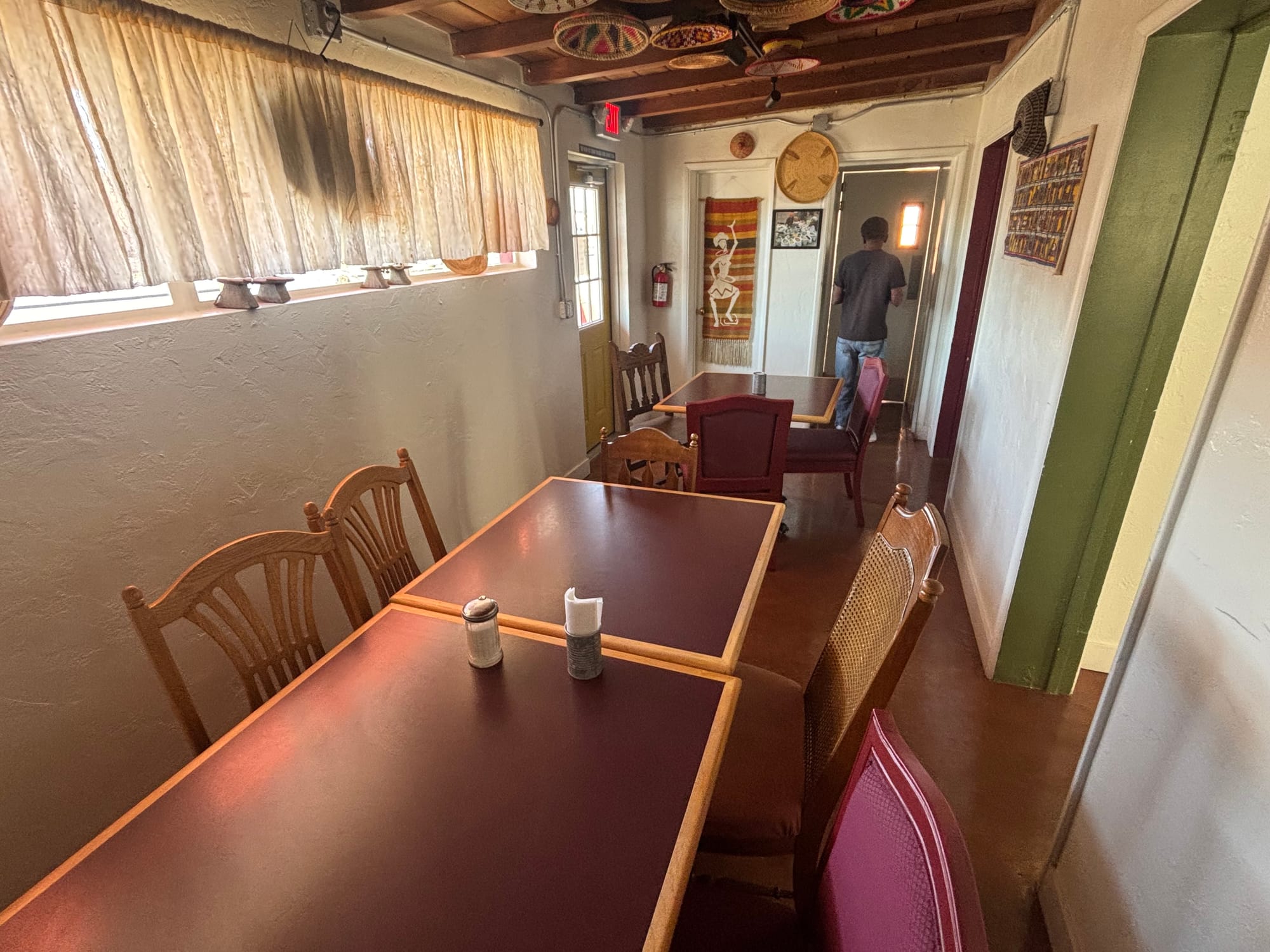
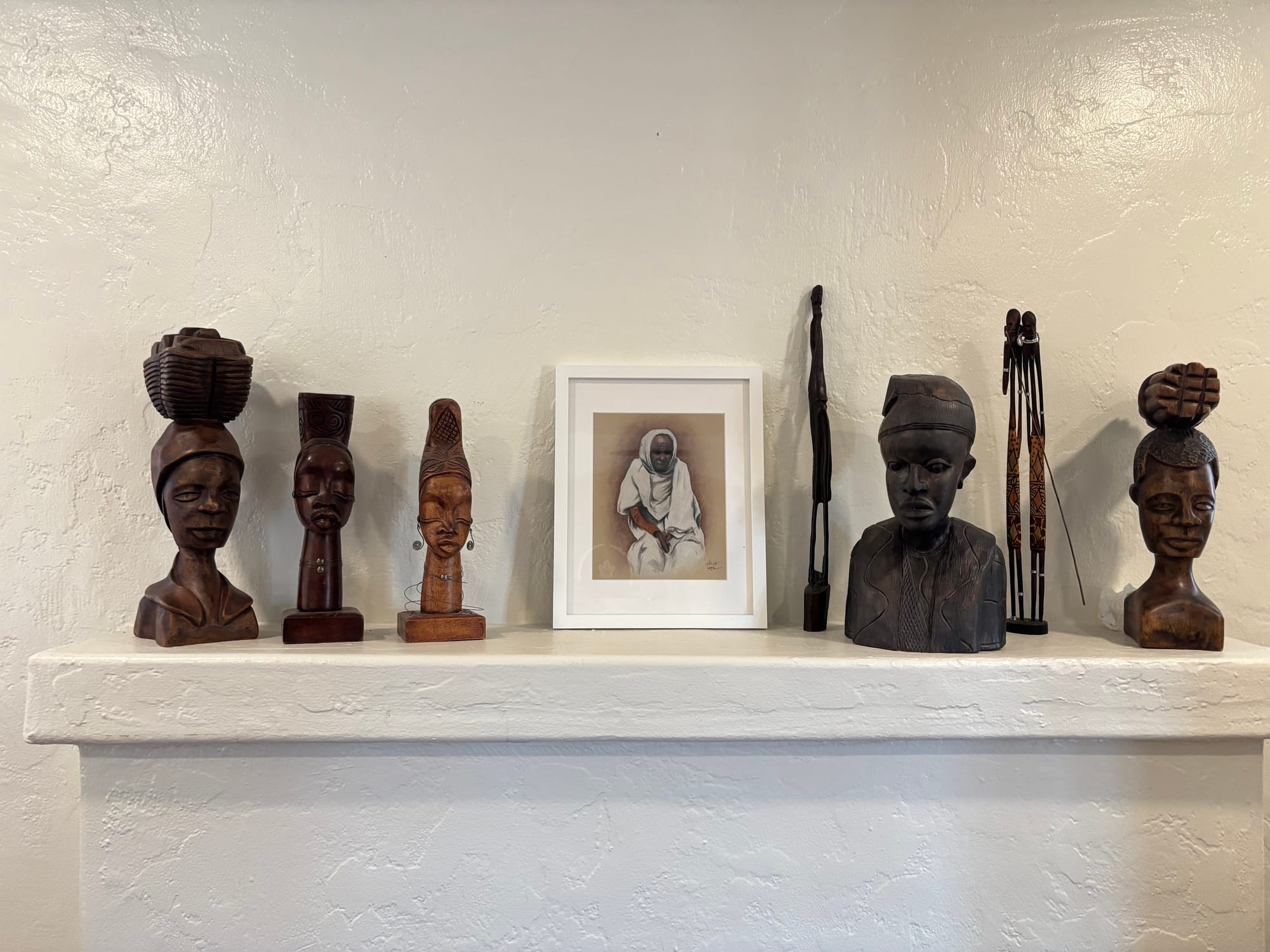
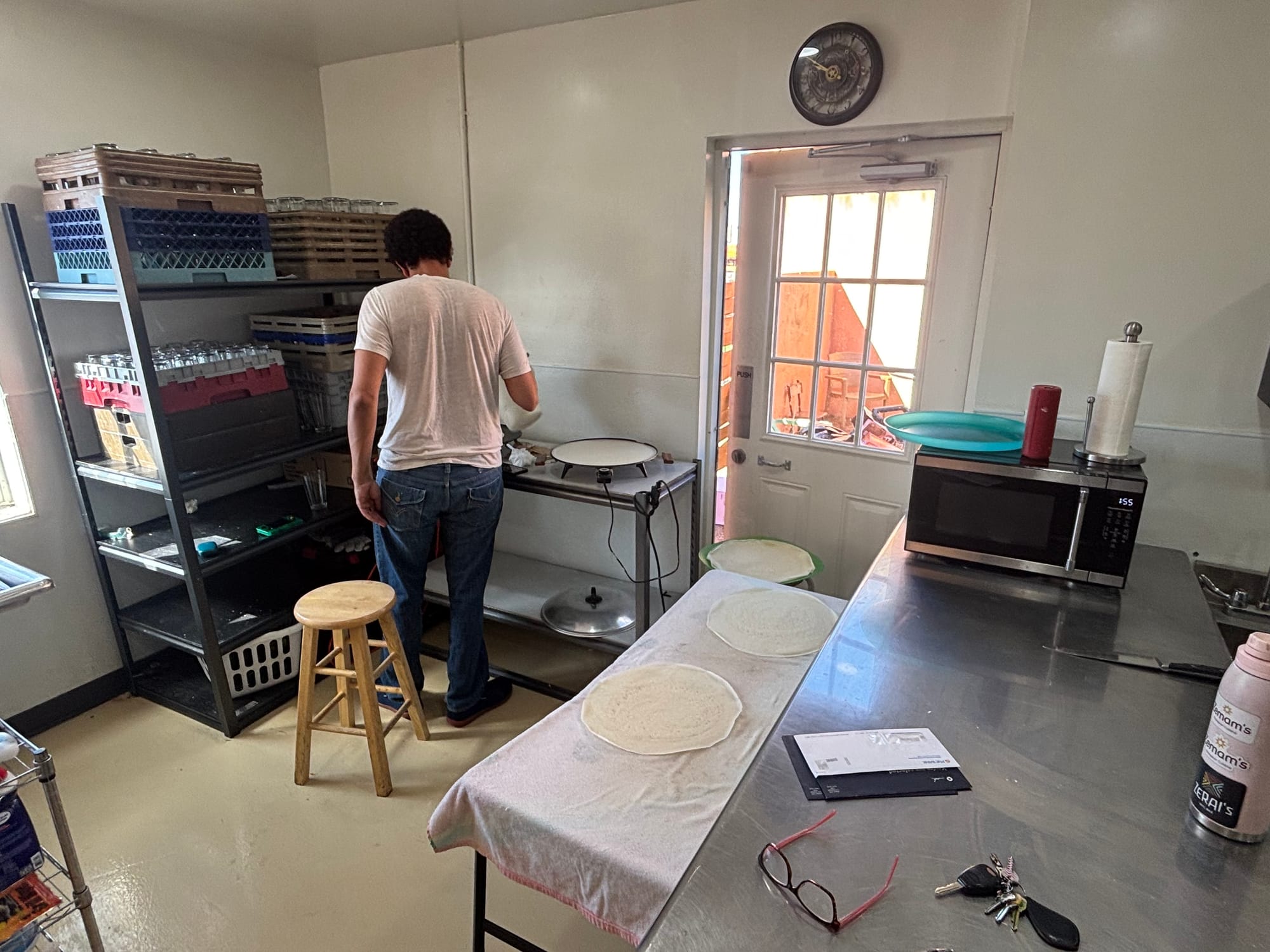
The restaurant has changed drastically in its 30 years, growing from just four tables to a larger dining hall with 28 tables, and a kitchen three times the size of the original. Griffen Engelberg / Tucson Spotlight.
Griffen Engelberg is a journalism major at the University of Arizona and reporter with Tucson Spotlight. Contact him at at gje1@arizona.edu.
Tucson Spotlight is a community-based newsroom that provides paid opportunities for students and rising journalists in Southern Arizona. Please support our work with a paid subscription.


